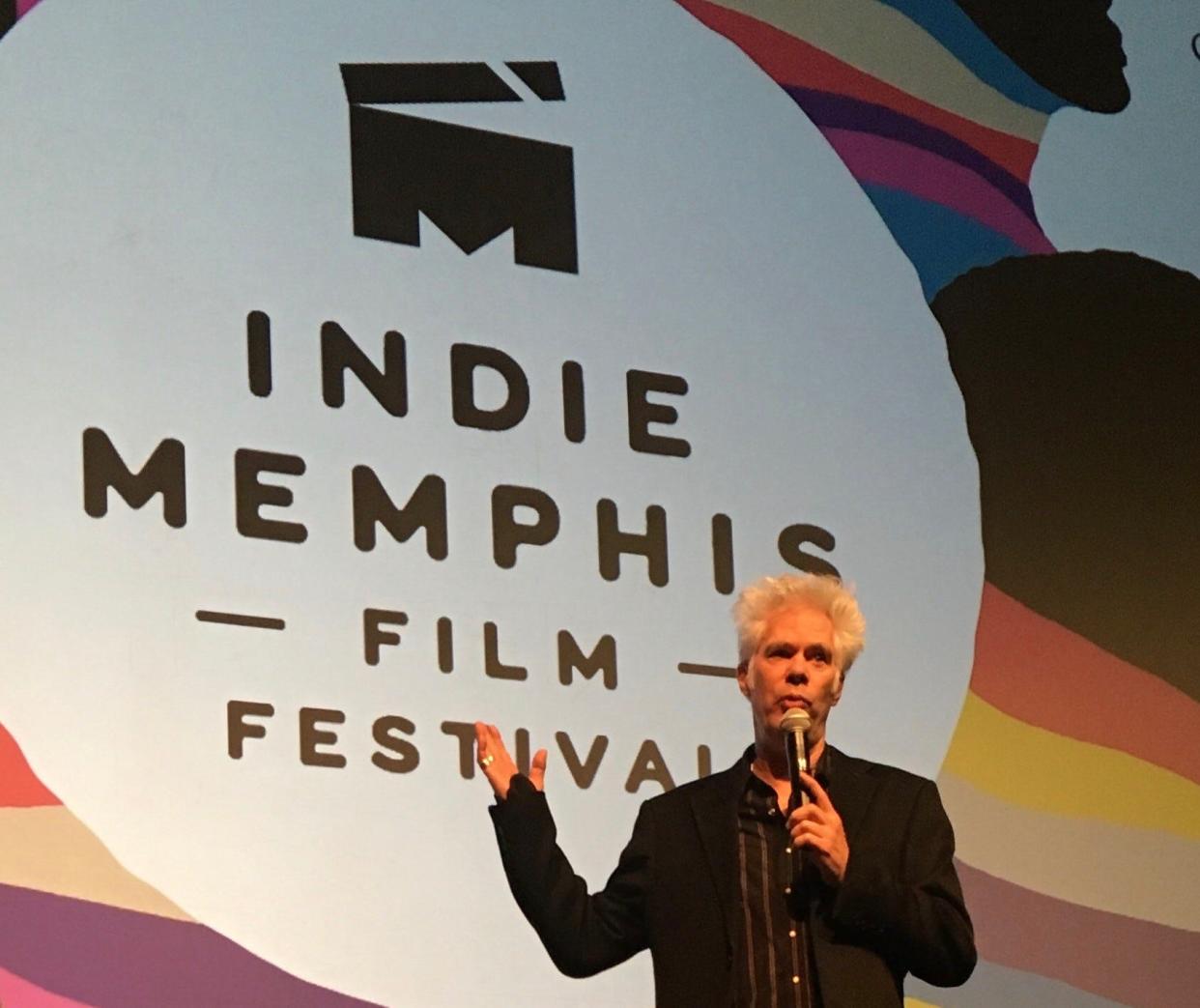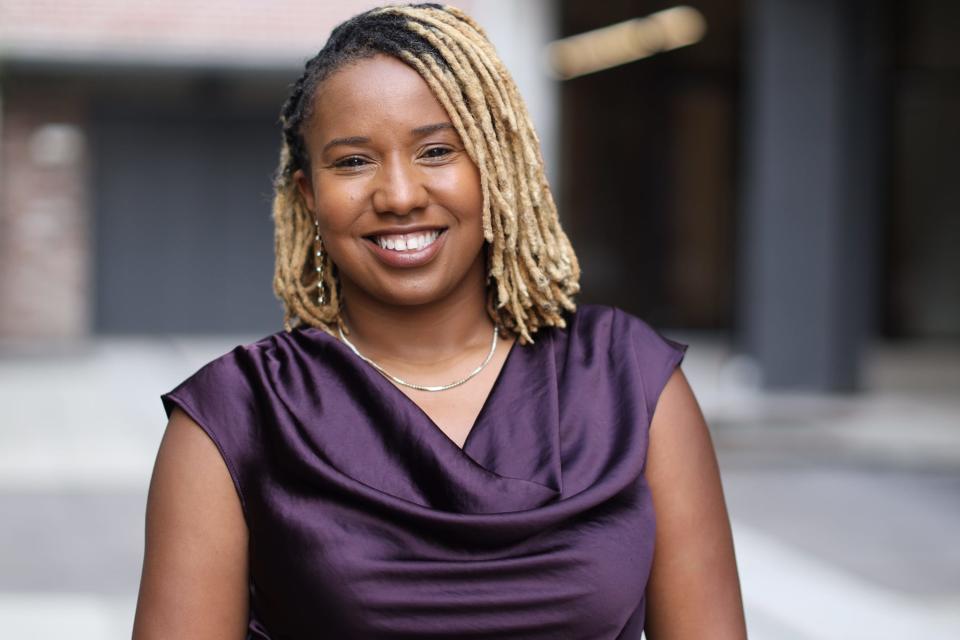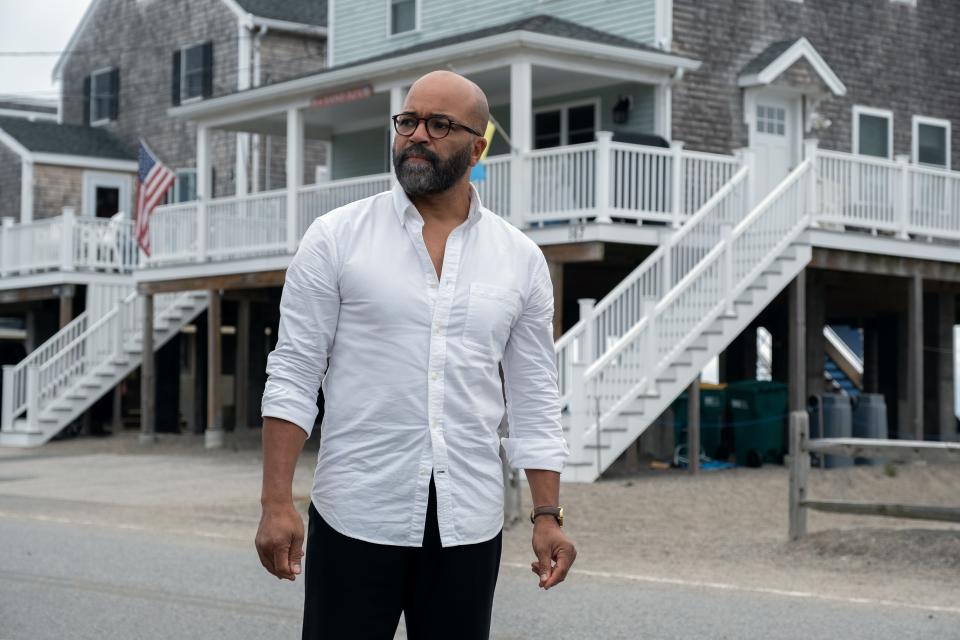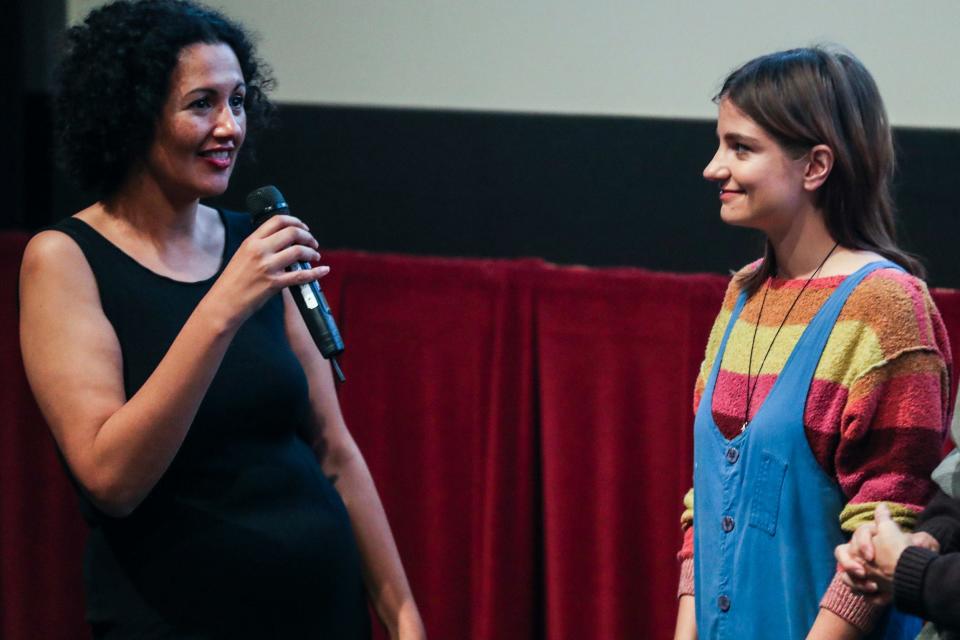Indie Memphis Film Festival: Cutbacks, changes and what it all means

The news was posted without fanfare on the organization's website but nonetheless set off alarms among some local movie buffs and arts devotees:
Pushed back until mid-November, the 27th Indie Memphis Film Festival will feature fewer days, fewer venues and fewer screenings than in most years in the recent past.
Festival officials also decided "not to accept national or international submissions for the 2024 festival only." In addition, "out-of-town jurors and traditional jury awards will be put on hold," according to the statement.
Indie Memphis officials, however, say these cost-cutting measures should reassure rather than dismay film fans, arts aficionados and Indie Memphis supporters. The pruning, they say, is more in line with the artful vegetable-peeling practiced by cook Juliette Binoche in "The Taste of Things," which screened during the 2023 festival, than with the arm-lopping butchery of Dario Argento's "Tenebrae," which also screened last year.
"We are not in a crisis mode, but we are in a situation where, realistically, the industry has changed and the world has changed," Indie Memphis Executive Director Kimel Fryer said. "We need a kind of catch-up year."
The cutbacks, Fryer said, represent a "strategic readjustment" intended to establish a strong financial foundation for the organization in the wake of the double-whammy disruptions of the COVID pandemic, which halted in-person events for months, and the Writers and Screen Actors Guild movie-industry strikes of 2023, which dried up sponsorships from studios and production and technology companies.
"This is definitely the best way for us to come back in 2025 much stronger for the future," said Fryer, an essentially lifelong Memphian who has film experience as a producer but was hired to lead Indie Memphis in October 2022 largely for her business acumen: She earned finance and business degrees from the University of Memphis and the University of Tennessee and a law degree from the UT College of Law; and her résumé includes stints with pharmaceutical company Pfizer and in the mergers-and-acquisitions department of Chrysler, where she worked on the automobile manufacturer's merger with Fiat in 2014.

"A nonprofit is a business," she said. "I'm positive this year is going to end well, but I'm going very conservative in our spending." The hope is that spending fewer resources on the festival itself this year will enable staff to spend more time working "to expand our revenue base" with donors "interested in investing in Indie Memphis longterm."
A 'streamlined' festival
Set to run Nov. 14-17, with "encore" screenings Nov. 18-19, the 2024 festival — which will occupy Crosstown Theater and three screens at the Malco Studio on the Square — may not seem as diminished as one might expect.
Although the absence of "national or international submissions" sounds grim, the wording refers to those festival competition films that don't already have distribution deals. The types of national and international movies that generally attract the most attention will remain on the schedule.
"I think the average filmgoer will have the same experience," said Indie Memphis artistic director Miriam Bale, who oversees much of the organization's programming. She said the "streamlined" 2024 festival will focus on "Hometowner" filmmakers, from Memphis and Shelby County, "and the films that get the biggest audiences."
For example, the 2023 festival featured the Memphis debuts of two of the more acclaimed and buzzed-about movies of the season, "Anatomy of the Fall" and "American Fiction," each of which has since been nominated for the Academy Award for Best Picture. These movies already had distribution deals in place and were not in competition at the festival, so they wouldn't have been affected by the type of restrictions in place for this year's festival.

However, the temporary suspension of submitted competition films is "painful," Bale said, because discovering and championing new work by often beginning filmmakers is an Indie Memphis priority, and central to the festival "mission" and "legacy."
As for the later-in-the-year November dates, these will enable Indie Memphis to "lock in" titles that played at the prestigious Toronto and New York film festivals in September and October, Fryer said.
In another major change, this year's festival will be Bale's last as artistic director, after seven years with Indie Memphis. The Los Angeles-based critic and curator played a crucial role in expanding the festival's emphasis on diverse voices, including Black, international, LGBTQ+ and experimental filmmakers, with the intention of making Indie Memphis what she called a film-community "Utopia."
"I think one of my biggest roles was in making it more of an international festival, and one that seems to have international recognition," said Bale, who said her Indie Memphis departure — in the works for some time — was not related to this year's cutbacks but was due to her desire to explore other opportunities in the film industry.
NEW DOCUMENTARIES: Memphis director's 'The Hobby' looks at million-dollar trading card frenzy
Fryer said it has not been decided if the festival will hire another "artistic director" or perhaps look for a more traditional programmer.
Bale said she supports Indie Memphis' 2024 strategy. "Since I've been here, the festival has kept growing, but we need to make sure that support for the festival is growing at the same level," she said.

"Honestly, people don't realize that as soon as one festival ends, we already are planning the next one," Fryer said. "These temporary changes are a way to take us out of the cycle mode and really think through, 'What's the best way to do this festival?'"
"The staff came up with this idea (of a reduced 2024 festival), but everybody is on board with it," said Kenn Gibbs of the Memphis logistics company Green Mountain, who is chair of the 13-member Indie Memphis volunteer board. "We want to make sure we don't just keep going down the same route. We want to make sure that more people know about us. It’s surprising that not enough people know we are more than the film festival."
COVID discombobulation
Tracing its origins to a 1998 screening of local works organized by University of Memphis student filmmaker Kelly Chandler, Indie Memphis tried out various names and formats before evolving into its current form as a year-round independent arts organization with five full-time and three part-time employees, augmented by volunteers. (The organization was headed by volunteers until 2008, when Erik Jambor was hired as the first salaried Indie Memphis executive director; Fryer is the fourth.)
Indie Memphis provides practical support as well as screening showcases for filmmakers through such programs as IndieGrants, the Black Creators Forum and the Youth Film Festival. The organization's Memphis Black Filmmaker Residency for Screenwriting enabled writer-director Raven Jackson to complete "All Dirt Roads Taste of Salt," a movie that received international acclaim after its Sundance debut last year.
Regularly scheduled Indie Memphis events include workshops; "Shoot & Splice" filmmaking forums; "Microcinema" showcases for short films; and screenings of feature films, such as Wim Wenders' "Perfect Days," a nominee for the Best International Feature Film Oscar, which is set for 7 p.m. Feb. 28 at the Studio on the Square.
Nevertheless, Indie Memphis probably is best known for its most popular but also costliest event, the annual film festival, which over the years has attracted such celebrated auteurs as John Sayles, Boots Riley, Ti West, Whit Stillman, Abel Ferrara, Jim Jarmusch and the late Lynn Shelton.
With screenings at five venues over six days in late October, the 2023 Indie Memphis Film Festival was a success, attracting 10,704 ticket-holders and netting a record $54,226 in ticket sales, according to Indie Memphis managing director Joseph Carr.
That success represented a welcome rebound, after the discombobulations of the COVID era.
Due to the precautions of the pandemic, the 2020 festival was a "virtual" event, with the exception of some outdoor screenings.
The 2021 festival was a hybrid of online and in-person screenings, but the number of available seats in each venue was reduced by half to conform with social-distancing protocols. In 2022, however, the festival returned to its regular schedule.
Organization finances were similarly in flux during this period, even with the federal COVID-recovery CARES Act stimulus package providing a boost.
In 2022, Indie Memphis reported net income of $326,502, but the year before it dropped to a deficit of $207,026. Similar fluctuations have characterized the organization throughout much of its history.
A major expense in recent years has been converting the live-theater venues Playhouse on the Square, Circuit Playhouse and Hattiloo into movie theaters for the festival. Also costly: bringing festival jurors — filmmakers, critics, programmers and others — to Memphis; hence, the temporary elimination of the in-competition films.
MEMPHIS MOVIE NEWS: Jerry Lee Lewis, Samuel L. Jackson, Tav Falco & more
'Global film community'
Indie Memphis operates on an annual budget of about $600,000, most of which is provided by grants, sponsorships and other donations. Longtime supporters include ArtsMemphis, the Hyde Family Foundation and, especially, Duncan Williams Asset Management, a financial services company that has been a major or "presenting" sponsor for a dozen years, even as the company has gone through changes.
Williams said he is encouraged that Indie Memphis is "taking a more business-like approach to running the festival. They are taking a step back to look at what they're doing right and what they can do better. My gut tells me that is what's happening." Referring to Fryer, he added: "The new executive director, she is a fireball."
He said his company will continue to be a festival sponsor, because "we think it's an important event for the city. The hope is that others will step up and show support, too."
As with any arts organization, the goal is to be sustainable without compromising the organization's "mission" or "vision." The latter qualities were defined late last year when Indie Memphis worked with the Strategic Point consulting firm to craft this "Indie Memphis vision statement": "A global community of youth and adult filmmakers with loyal supporters and Memphis at its heart." Meanwhile, the new "mission statement" reads: "Foster an intersectional and racially equitable independent film community and nurture the growth of filmmakers."
"Indie Memphis became the brand that it is by engaging with the community, by connecting with people," Fryer said. "We are not one of those organizations that put up a diversity statement and took it down because it’s not popular any more. We are in a majority Black city, so we want to be cognizant of that while also building on the idea of the Memphis community as a whole and being part of the global film community."
In other words, "We want to build an audience that's going to be around for the next 27 years," Fryer said.
This article originally appeared on Memphis Commercial Appeal: Indie Memphis Film Festival scaling back in 2024: Here's why.
